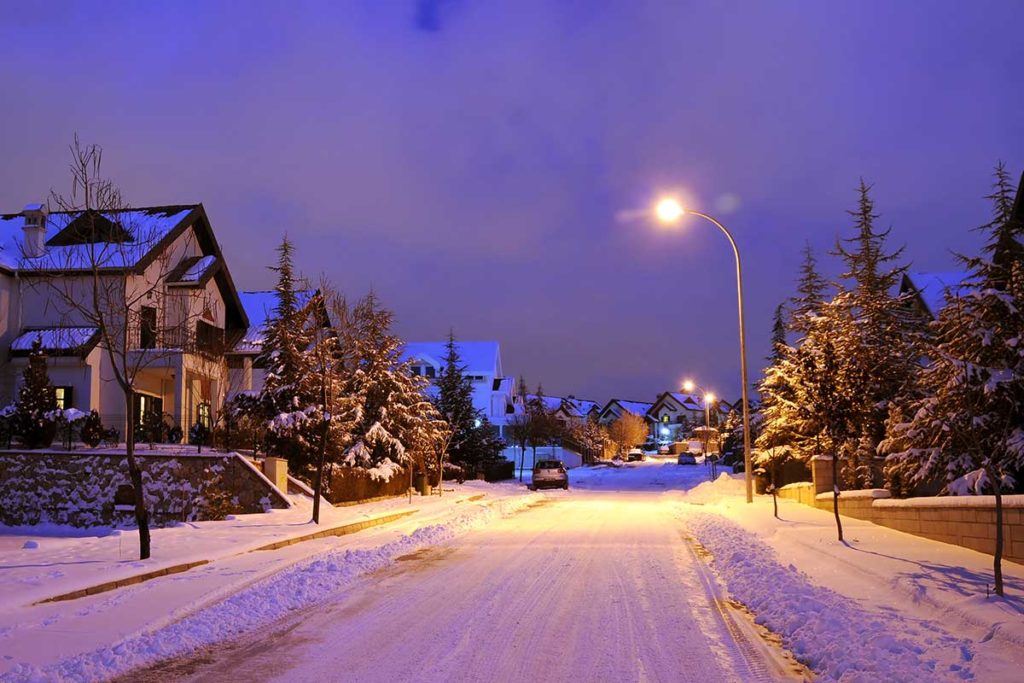
Winter Home Safety Tips
Here are 8 home safety tips that will keep you safe and happy during this winter season. You can start implementing these home safety tips today to ensure that you are winter-ready and beat the cold weather.
To decrease the likelihood of a fall happening while walking to your car or to check the mail, make sure that your walkways are salted and/or shoveled if you live in a snowy/icy area.
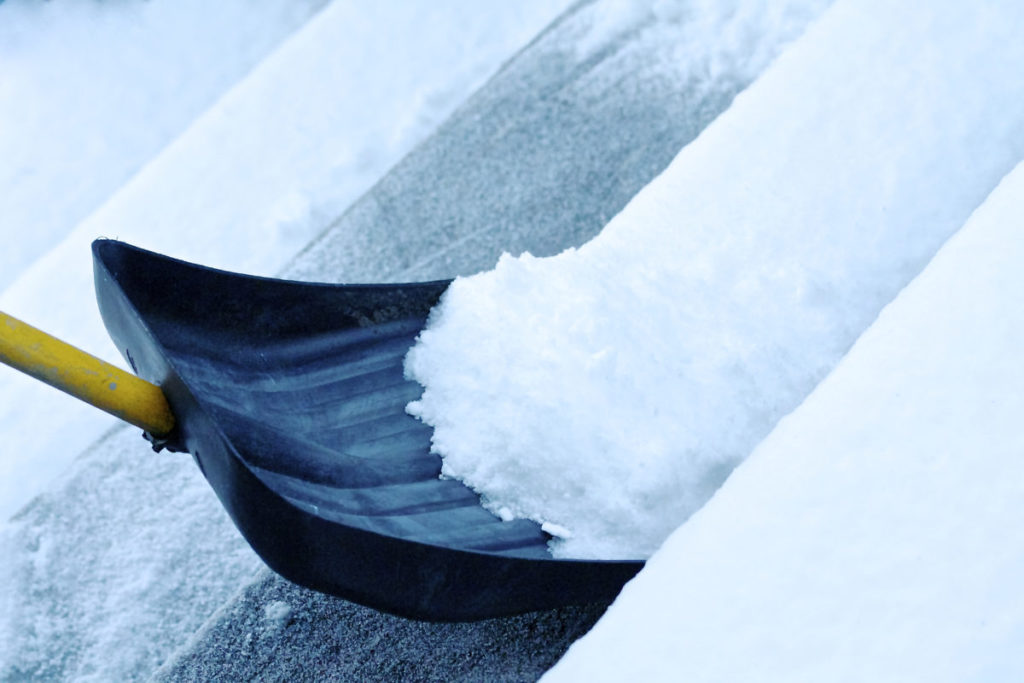
Shovel and Salt Your Walkways
One of the biggest dangers for seniors is falling (inside or outside of the home). When a fall occurs, there is a much larger risk of breaking a bone or being left unattended for hours (or even days) at a time. To decrease the likelihood of a fall happening while walking to your car or to check the mail, make sure that your walkways are salted and/or shoveled if you live in a snowy/icy area.
As temperatures are falling, the snow/ice is falling, too. While the view from your living room window might be beautiful, the hidden dangers that await you on the walkway are serious. If you are not able to salt/shovel your driveway and walkways, enlist the help of one of your neighbors or family members. You could even look for a neighborhood teenager looking to make some extra cash for the holidays to help you complete this task. The last thing you would want to do is to create more a dangerous situation for yourself by trying to do the shoveling/salting by yourself.
Salting/shoveling the walkway/driveway will help keep you safe by ensuring that you don’t slip on your way to a holiday party or on the way to see your family. This home safety tip will keep you (and anyone who visits you) safe during the winter.
Prepare Your Home for Possible Power Outages
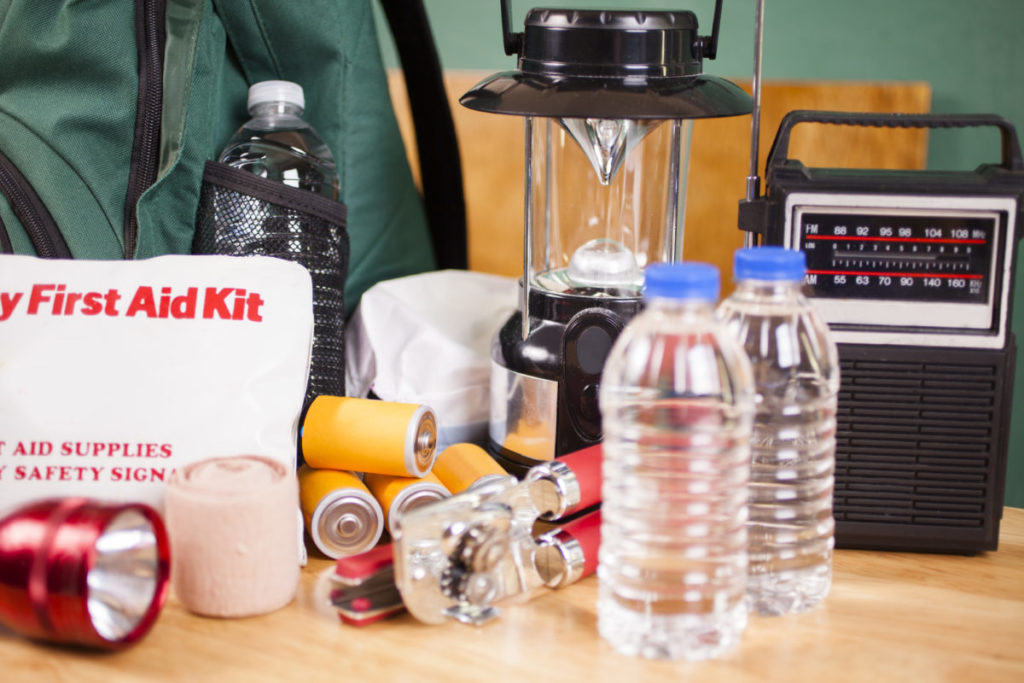
The winter weather can certainly increase the probability of power outages. With heavy snowfall and icy conditions, power lines can become weighed down and power outages become much more likely. So, how do you prepare your home for possible power outages to keep you safe and warm? Let’s look at these home safety tips to keep you from being unprepared should your power go out this winter.
Make sure to stock up on flashlights and batteries so that you can find your way around your home if the lights go out. Create a pile of blankets that are easily accessible (not in the top of a closet or in the basement) so that you can keep warm if the heat goes out. Also, make sure to have hats, scarves, and sweaters that you can layer available and easy to access so that you can keep your body heat up. And, of course, keep non-perishable foods in your pantry that you can eat cold. Your refrigerator/freezer will be out of commission during the power outage, so keeping food in your pantry that won’t spoil and doesn’t have to be heated up is ideal.
Decrease the Risk of Carbon Monoxide Poisoning
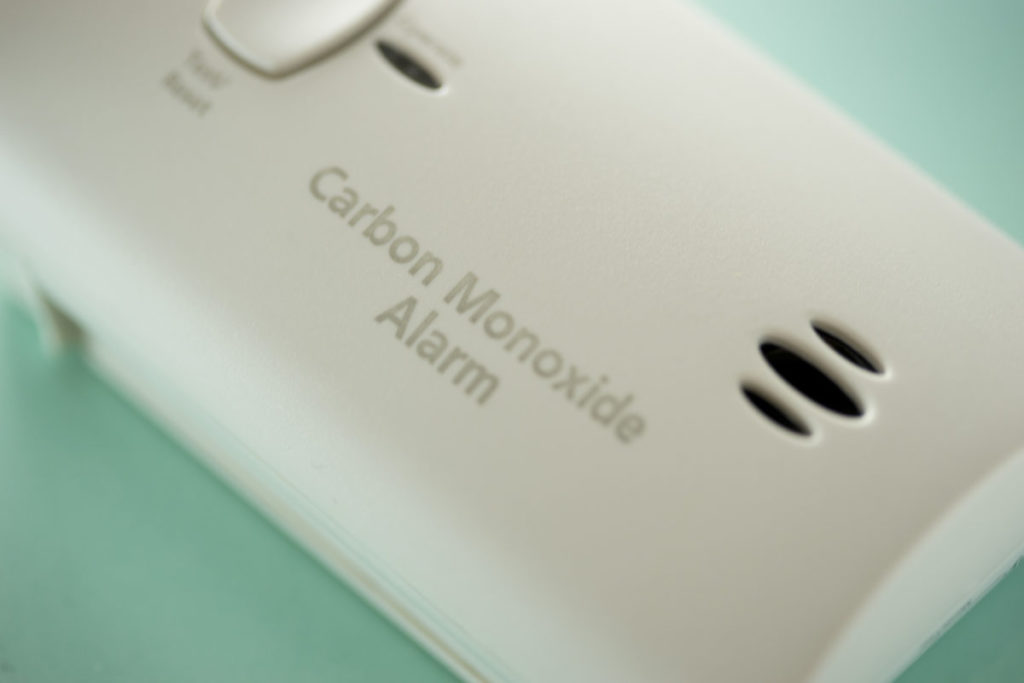
Seniors often live alone and not very close to friends and family. Because of this fact, it is important that carbon monoxide detectors are kept up-to-date in order to decrease the risk of carbon monoxide poisoning from the use of fireplaces, heaters, or lanterns. Home safety tips such as this one are crucial in saving your life. With a carbon monoxide detector, you will ensure that your home does not become filled with the poisonous, invisible gas that could take your life during your sleep.
Buy an Artificial Christmas Tree
Those artificial trees just don’t smell as good as the real ones, and they don’t have the same feel as the real ones. But, in order to keep your home safe during the winter season, you should consider buying an artificial Christmas tree to decrease the risk of house fires. This home safety tip is highly recommended by firefighters for seniors living alone. Why? Because real trees have an increased chance of starting house fires with their real branches and heat from the lights lighting it up. It’s also important to check the label of your artificial tree to ensure that it is labeled “fire resistant.” This will take your safety level up another notch and increase your home safety during the winter season.
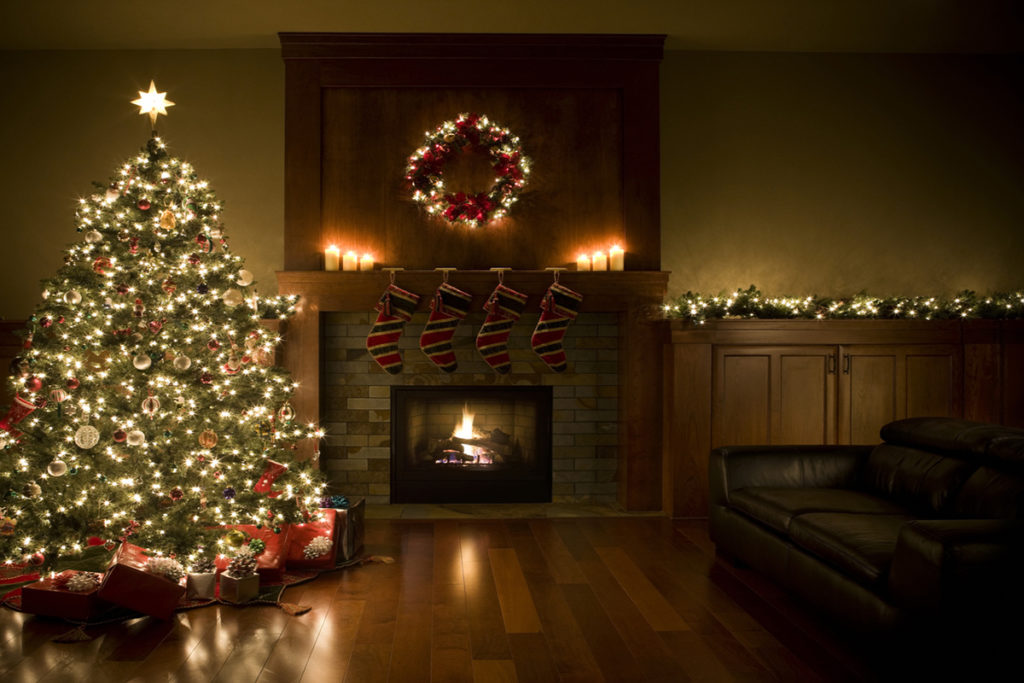
Arrange for In-Home Care during Weather Emergencies
Some elderly loved ones are able to stay at home alone and take care of themselves on a regular basis and others require in-home helpers to keep them safe during the day! Either way, it is likely that any in-home care goes home for the night and family takes over the responsibilities. If this is the case, or you don’t have a home helper at all, it is strongly encouraged to arrange for in-home care during weather emergencies to ensure their safety during dangerous times! You could hire someone to stay with you during those weather emergencies to help you general tasks that could be harder without electricity, or you could ask the family to come stay with you. Either way, arranging for in-home care during those dangerous times could mean the difference between life or death. Just having a second set of hands can be incredibly helpful in completing some of those daily tasks that might be made difficult during emergencies.
Have Your Chimney and Flue Inspected Yearly
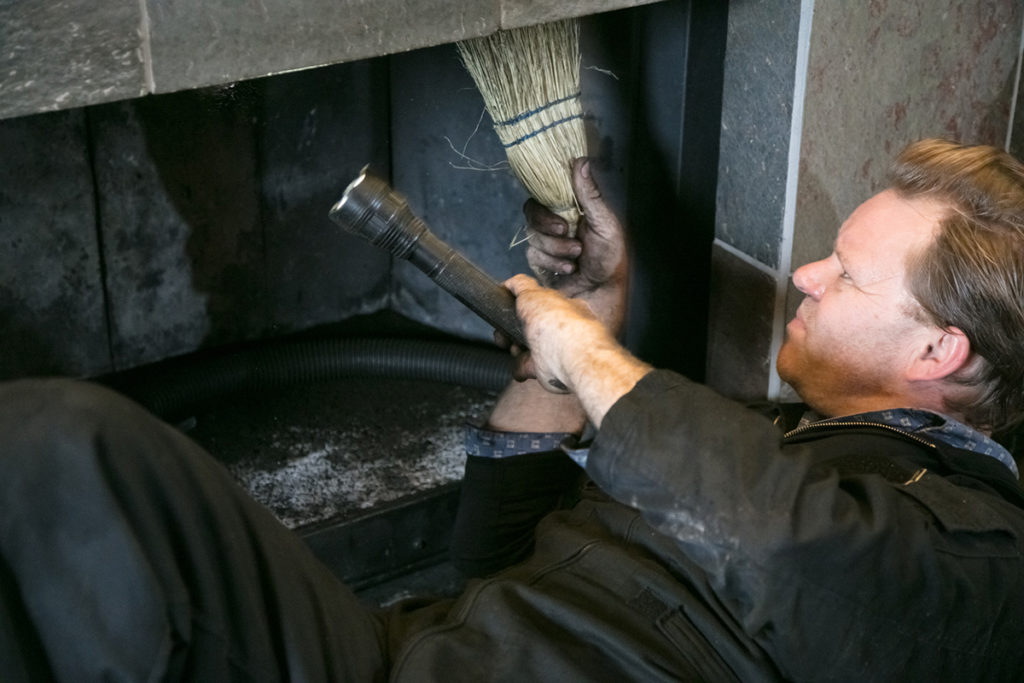
Before the cold weather rolls in and the fireplace is used on a regular basis, get your chimney and flume inspected by a professional to ensure that all parts are in working order.
The winter season brings about chilly temperatures in the parts of the country that don’t experience warmth year round and it is likely that you will use your fireplace a time or two during the cold season. Before the cold weather rolls in and the fireplace is used on a regular basis, get your chimney and flue inspected by a professional to ensure that all parts are in working order. Having both of these inspected and cleaned yearly will leave you with peace of mind that using the fireplace will do nothing but keep you warm (which is the only thing you want it to do). Do not try to inspect or clean it on your own, though. Leave this to a trusted professional so as to decrease the risk of unnecessary injury. You want to be able to enjoy the time with your family instead of being hurt and unable to actually attend family dinners or parties.
Keep a Fire Extinguisher in Your Home
If you are unsure of how to actually use your fire extinguisher, have a family member or a firefighter teach you how to use it so that you can effectively protect and prepare yourself for any emergency that might arise.
This home safety tip will be another tip that could mean life or death for you during the winter time (and really any time of the year). Most households have a fire extinguisher, but very few people actually know how to use it. During the winter time, you will have an increase in times where you will want to heat things up (use of the fireplace, use of a gas stove, use of a heater, lighting your Christmas tree, etc.). In case something goes wrong and a fire is started, you will want a fire extinguisher on-hand and ready to use. If you are unsure of how to actually use your fire extinguisher, have a family member or a firefighter teach you how to use it so that you can effectively protect and prepare yourself for any emergency that might arise.
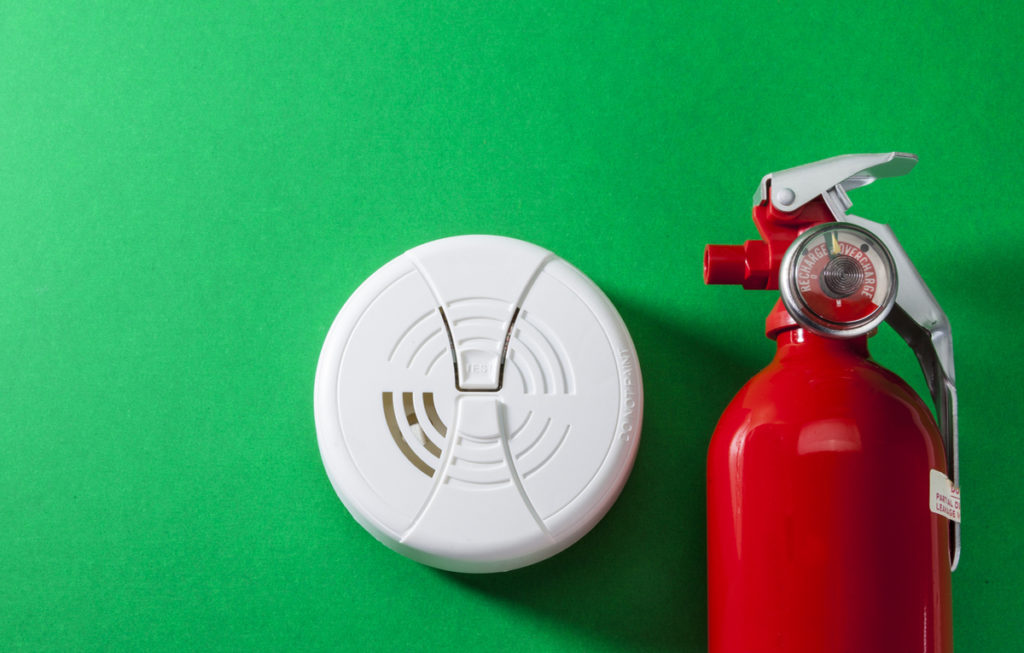
Check Your Extension Cords
Home safety tips are very useful in terms of keeping your home safe, but home safety tips that are specific to the winter time are especially important. You will inevitably have many things to plug in during the winter season—Christmas tree lights, heaters, appliances, radios, televisions, etc. But that also means that you’ll need extension cords to plug all of those electrical pieces in to make them work.
In order to keep your home safe, you must ensure that your extension cords are safe, up-to-date, and not weathered at all. And remember not to plug too many things into one outlet so as to avoid overexposure.
Conclusion
Home safety tips are important for everyone, but they are especially important for seniors who live alone or further away from family and friends due to the potential lack of mobility and decrease in strength to take care of certain things in the home. Family and friends can help you get your home ready if you are not able to do these tasks on your own. If asking for help isn’t something you’re used to doing, step out of your comfort zone this winter season to make sure you are safe and ready for whatever comes your way. Many of these tips can be applied today to help keep your home safe and winter ready. Enjoy the holidays by employing these home safety tips right away.
Do you want to cite this page? Use our ready-made cite template.